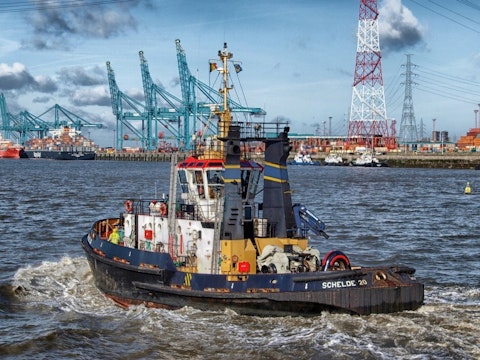To rank and list the 11 most ethnically diverse cities in Europe is a huge challenge. When you rank cities within a country, you usually have the same methods of census across those cities. International rankings are never so simple. In the EU, Eurostat gathers statistics but does not require a census or any other specific information. For example, it’s against French law to gather information about race or religion even for the census.
What defines an ethnicity? This question is hard, too — conversations about ethnicity can quickly lead to fighting and, in the worst cases, violent conflict. The issues facing Europe are often different than those facing those of the 14 most ethnically diverse cities in the world that are outside of Europe. Researching the ethnic groups of cities in Poland often leads to one conclusion: Some number of ethnic minorities were killed or forced out of Poland during one of each of the major wars that battled on Polish soil. Religion and ethnicity are often conflated but aren’t the same. Language doesn’t define ethnicity either. It’s an unstable foundation on which to try to stack really tough, personal questions. And the more tense a region becomes in its questions of ethnicity, the more likely its citizens are to lie to protect themselves and their families.
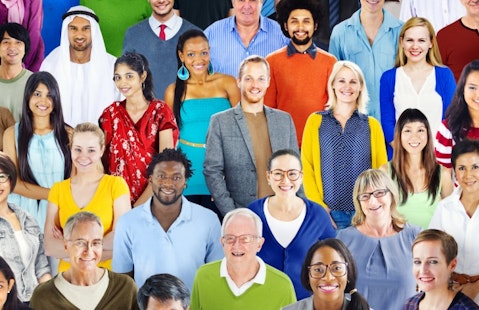
Rawpixel.com/Shutterstock.com
In 2015, Europe has made the news countless times for its position as a refugee highway out of war-torn Syria, Afghanistan, and more. But these news stories happen in a time when borders in Europe are more concrete than maybe ever before — we talk about refugees passing through nations and bringing demographic changes with them, but we assume the borders themselves won’t move or change. That hasn’t always been the case, and some European cities reflect the ethnic diversity of groups that once had nations and ethnic majorities in the same place. Land changed hands under empires and regimes and during massive wars. Lifelong intelligence officer and political scientist Dr. George Friedman puts it this way: “Between 1914 and 1945, Europeans waged a series of wars about national boundaries and about who has the right to live where. This led to one of the greatest slaughters of human history.”
Modern European borders don’t often include the kind of border security that marks many other parts of the world, but European nations have strong senses of identity and self that form an important part of public life. The world is watching as Germany, having admitted a million refugees in 2015, grapples with how best to welcome and assimilate those refugees. Being German is not a race or religion. Chancellor Angela Merkel “wants to ensure that people do not only coexist, but also that they feel they belong to one community despite their different backgrounds,” said Christine Langenfeld, an expert on migration and assimilation.
Nowhere is this spirit more evident than in France following the horrific coordinated attacks on Paris on November 13, 2015. President Francois Hollande said to a group of French mayors, “We have to reinforce our borders while remaining true to our values,” again conjuring the idea that borders represent France’s identity but also the gateway that France uses to welcome new citizens with “liberty, equality, fraternity.”
With these complex factors at play, how do we measure ethnic diversity, especially of individual cities? I’ve developed a metric that I think is fair and balanced based on three sources. First, cities receive points based on their statistical ethnic makeup, receiving 1 point for every 10 percent of the population that is from another country or from a notable ethnic minority. Second, I added the Pew Religious Diversity Index value for the country where the city is located, which ranges from 0 to 10. Third, I added Dr. Erkan Gören’s study (PDF) of indices of cultural diversity, which uses a number of factors like language and differences between groups in a country and again ranges from 0 to 10. Finally, I gave a tiny boost to cities that volunteered for the Council of Europe’s study of Intercultural Cities, assigning .5 extra points for an average Intercultural Cities Index and 1 extra point for above-average.
Dry methodology-talk over! Let’s look at some great and diverse cities of Europe.
11. Dortmund, Germany and Stuttgart, Germany (tie) — 10.925 points
Stuttgart has more non-German people than Dortmund, but Dortmund’s participation in the Intercultural Cities project brings it into a dead heat with Stuttgart. The two cities have similar population sizes, though Stuttgart is nearly twice the geographical size because of its location in the hills of one of Germany’s wine regions. Stuttgart, attractive to immigrants for its low unemployment and thriving industry, is also known for being the original powerhouse of automotive technology and innovation, with headquarters of Porsche and Mercedes-Benz. Dortmund’s population is nearly 10% students, with an overall “university town” cultural climate as a result. It draws newcomers through education and through its industrial economy.

10. Leicester, England — 10.941 points
Bend It Like Beckham star and Blacklist main player Parminder Nagra is a product of the rich diversity of Leicester. Leicester has an ethnic minority population of about 40%. The largest subgroup is made up of those from India, and though Nagra’s family moved to Leicester from India in the 1960s, their Sikh beliefs make them unusual among Leicester’s majority Hindu-minority Muslim Indian population. Leicester shares survey results (PDF) that indicate its residents speak 70 different languages and almost half of its schoolchildren speak a language other than English as their “preferred” language outside of school. The most popular languages other than English are Gujarati, Punjabi, Somali, Urdu, Hindi, Arabic, Bengali, and Polish. Britain’s unusual sports car maker Noble is based in Leicester, a novelty on its own but especially in an economy made mostly of clothes and shoes, including rising international star Boden.
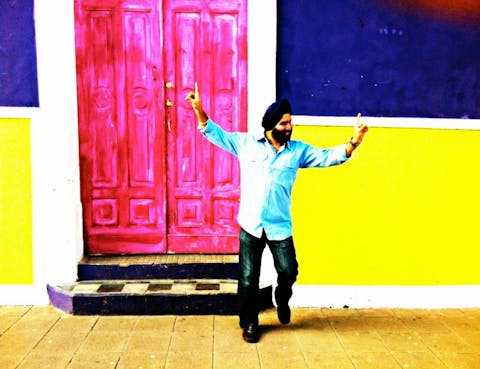
9. Lyon, France — 11.099 points
France staunchly avoids collecting ethnicity and religion data on its citizens, but 14% of Lyon’s residents were born outside of France, higher than France’s average of about 90%. Lyon’s nickname of the Capital of Lights has a many-layered meaning. The Lumière brothers lived and worked in Lyon and invented an early film recorder and player. Their last name means “Light” in French, the same as the ladykiller candelabrum in the French-set Disney classic Beauty and the Beast. Lyon holds a Fête des Lumières (Festival of Lights) each year. It was also the birthplace of two ancient Roman emperors, one of whom is often credited as claiming Britain for Rome.

8. Tallinn, Estonia — 11.225 points
Tallinn’s history dates back thousands of years, and for much of that time it has served as an important cultural “neutral zone” for neighboring Russia and Scandinavia. About 9% of Tallinn’s citizens today are neither Estonian nor Russian — Estonia was part of the Soviet Union, and Tallinn is heavily Russian still — and Estonia as a whole gets high marks for religious diversity and its demonstrated ability over centuries to accommodate many occupying cultures and systems. Estonia is also the home of Skype, which is a critical tool in the globalized world and for those living far from their families or birthplaces. Even the original Skype team included multiple nationalities. Tallinn shares some cultural legacy with Riga, Latvia, which is another of the 11 most ethnically diverse cities in Europe.
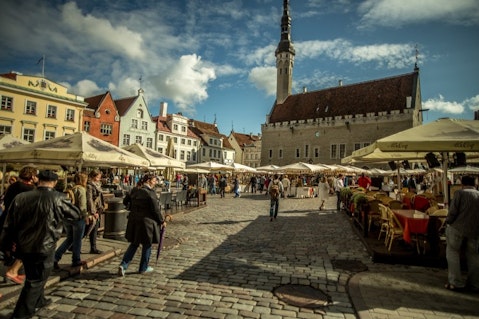
7. Marseille, France — 11.579 points
Legendary French soccer player Zinedine Zidane was born in Marseille to parents who migrated from Algeria in the 1950s. Like Lyon, Marseille has an especially rich history, valued since antiquity for its position on the Mediterranean coast. In fact, the city was created as an outpost for Greek migrants traveling from the Aegean Sea, making it multicultural since inception. Marseille’s location has made it both a hub and a final destination for immigrants over the centuries. Marseille is about 80% French-born people of all ethnicities, with high populations of Maghrebis (Northwestern Africans) like the Zidanes. There are also many people of Italian descent.

6. Riga, Latvia — 12.114 points
Coastal Riga was the target of a very specific crusade by the 13th century Catholic Church and Holy Roman Empire, which steamrolled many existing local traditions but also paved the way for Riga’s future as a prosperous port city. Ethnic Germans ruled both Latvia and Estonia for seven hundred years until being absorbed by the Russian Empire. Later, during its time as part of the Soviet Union, Riga was the birthplace of Mikhail Baryshnikov. He defected in the 1970s but Russians who remained in Latvia were not made citizens after the dissolution of the Soviet Union. Their numbers in Riga are high but continue to decline, as does Riga’s overall population. Native Latvians are now the largest ethnic group in Riga.
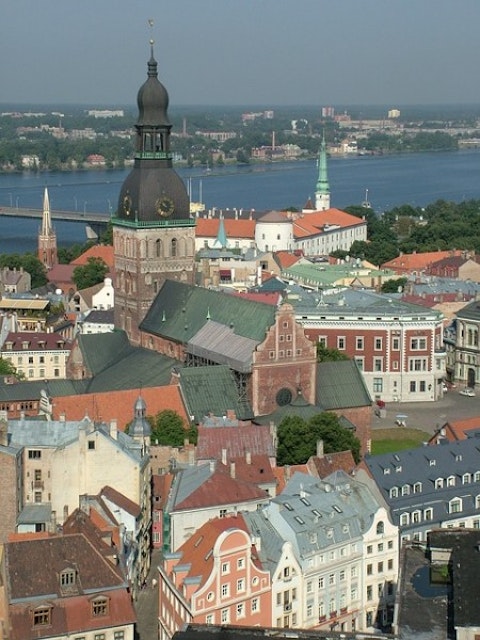
5. Amsterdam, Netherlands — 12.503 points
Amsterdam is known around the world as a gigantic party-city destination, and it was the wealthiest city in the world during the zenith of the Atlantic slave trade under the Dutch West India Company. But aetataureate Amsterdam was conquered by Napoleon and left to stagnate. It reemerged with a more robust economy, a new system of canals, and population growth only to be reconquered, this time by the Third Reich, and 75% of the Jewish people in the Netherlands were killed by the Nazis. Amsterdam’s low population of ethnic Dutch and high religious tolerance earn it high points, but the city has notable ethnic tension over time.
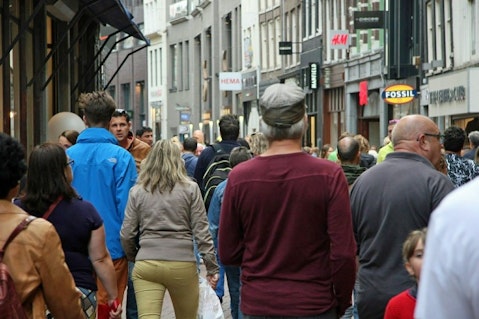
4. Zürich, Switzerland — 12.76 points
Switzerland is a small nation at an important geographical crossroads, with cultural Italian and French influences alongside dominant German. (In fact, ancient ancestors of the Swiss fought one of the Roman emperors who was born in Lyon.) Zürich is repeatedly named one of the best places in the world to live and work and has one of the highest qualities of life. Moreso than many of the other 11 most ethnically diverse cities in Europe, Zürich is a center of financial industry. The city’s 31% non-Swiss citizens are only 8% close-neighbor Germans — the rest is a veritable EU salad of citizens of both Eastern and Western Europe. Zurich’s 5% Muslim population sounds small until you see it beside just 30% Roman Catholic and 26% Protestant.
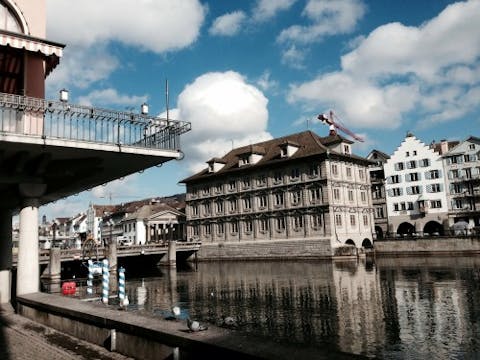
3. Rotterdam-The Hague, Netherlands — 12.943 points
Both Rotterdam and the Hague, forming one metro area, have the same roughly 50% native Dutch population as Amsterdam. The Hague is best known as the location of the International Criminal Court, but about 600,000 people who apparently aren’t affected by the “not in my backyard” mentality also live there, including the King and Queen of the Netherlands and a surprising mix of people from around the world. The two cities are home to tens of thousands of people born in the remnants of Dutch colonialism. Rotterdam is technically at sea level, and much of the Netherlands is at or below sea level — the government plans extensively to protect from floods and other problems.
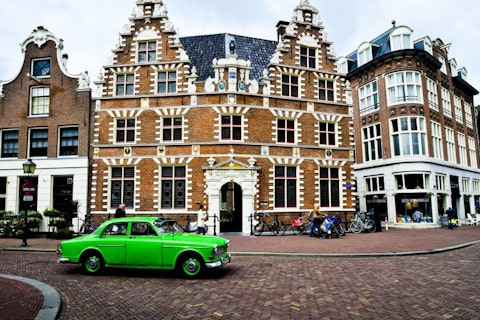
2. Skopje, Macedonia — 13.604 points
Skopje receives high scores for religious and ethnic diversity, but the city also features a striking side-by-side mix of old and new and a great deal of geographic diversity too. Nestled between mountains and split by the Vardar River, Skopje lies on the junction of the African and Eurasian tectonic plates — millennia of documented underground rumbling are dotted with serious earthquakes, like the one that destroyed almost the entire city in 1963. The silver lining was that Skopje’s administrators were able to make future-looking plans for Skopje, including better infrastructure. But the city remains very ethnically segregated: ethnic Macedonians mostly live in the rebuilt city while the largely Muslim Albanian minority, the largest such group in Macedonia overall, live in the poorer north part.

1. Antwerp, Belgium — 15.074 points
With a 40% immigrant population that will only keep increasing, Antwerp is yet another ancient port city with a long history of diversity. In fact, it rose to importance after a neighboring ancient port was, well, reclaimed by the land. About 8% of Antwerp’s population comes from Morocco, mostly Muslim, and about 3% are very conservative Orthodox Jewish people, reflecting Belgium’s high Religious Diversity Index and cultural diversity scores. Unfortunately, Belgium’s religiously and ethnically diverse climate has made the news recently as the home turf for extremists involved in the November 13 attacks in Paris. The 11 most ethnically diverse cities in Europe all grapple with the issues created by multicultural populations.
